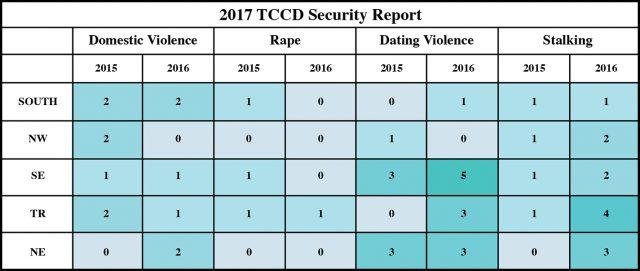By Gabrielle Saleh/reporter
Taking out loans to pay for college can greatly impact a student’s quality of life after graduation, said a NE speaker during a student success workshop Oct. 2.
NE financial aid specialist Joe Rodriguez talked about the types of repayment options for student loans and the ways to achieve financial security. The Plan for Success presentation was part of a series in partnership with Texas Guarantee, a company that provides financial aid information.
Rodriguez said one of the requirements for taking out student loans is that students are obligated to pay back the loans. Some students do not, which places their loans into default, he said.
“Defaulting is not a good option,” Rodriguez said.
When a federal student loan goes into default, the government may withhold one’s wages, income tax refund and Social Security payments, Rodriguez said, adding that “The government will get their money back.”
Rodriguez listed the seven repayment options the Department of Education offers for students to pay back their student loans: standard, graduated, extended, income-based, income-contingent, income-sensitive and pay as you earn.
“The standard repayment plan is the least expensive option,” Rodriguez said.
Compared to other plans, borrowers pay less interest using the standard plan over 10 years, which lowers the loan’s overall cost, he said. The graduated plan allows borrowers to make smaller payments at the beginning and increases over time during 10 years, he said.
The extended plan is only available for student loans with at least a $30,000 balance, and borrowers pay this loan over 12 to 25 years. The income-based plan allows borrowers to make smaller payments for an extended period of time, Rodriguez said.
“However, borrowers must have a partial financial hardship to qualify for the plan,” he said.
Although the income-contingent plan is similar to the income-based plan, borrowers do not have to meet the specific qualifications, Rodriguez said. The plan is based on the borrower’s adjusted gross income, he said.
Similar to the income-contingent plan, the income-sensitive plan is based on the borrower’s annual income, but the loan is repaid in 10 years, Rodriguez said.
“This plan does not look at factors other than income,” he said.
The pay-as-you-earn plan also requires a partial financial hardship, and the loan payment is no more than 10 percent of the borrower’s income, Rodriguez said.
Rodriguez said students should always communicate with their lenders.
“There is a payment plan for basically anyone,” he said.
Ronda Isaacs, NE coordinator of special services, organized the speech to help TCC students understand how financial aid works.
“We want to make sure that we have financial aid workshops so that students just have a better understanding,” Isaacs said. “I don’t want any student to graduate with more loans than they have to have.”












































